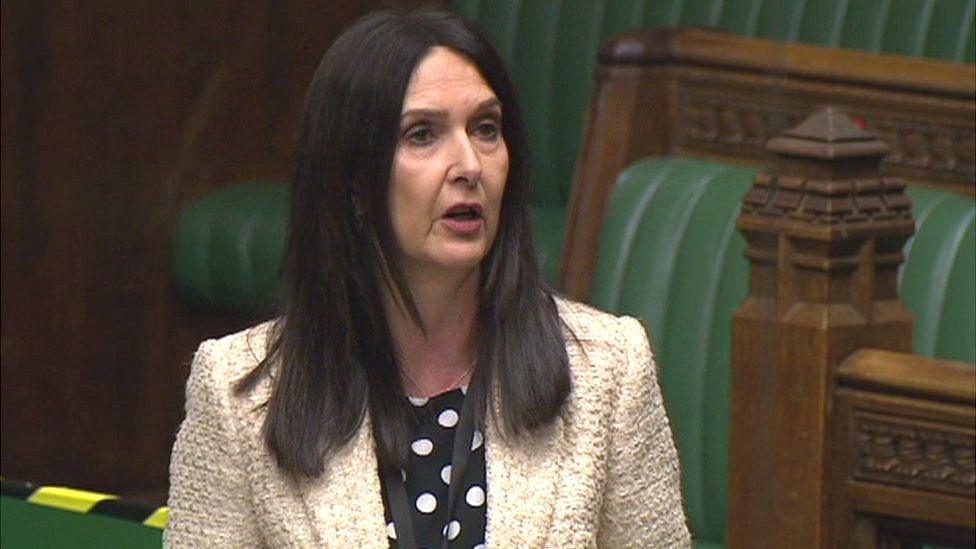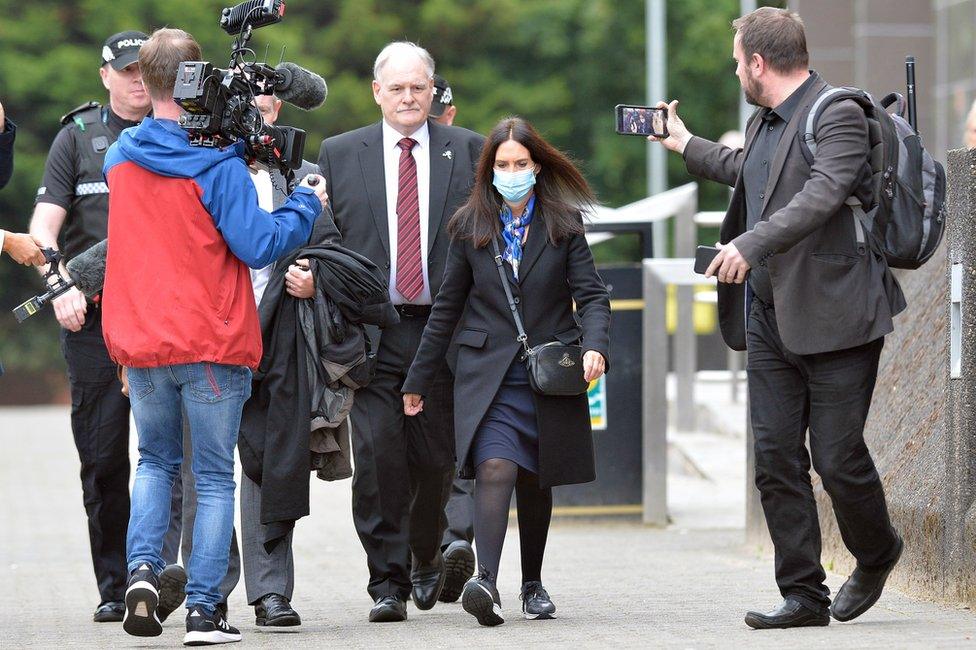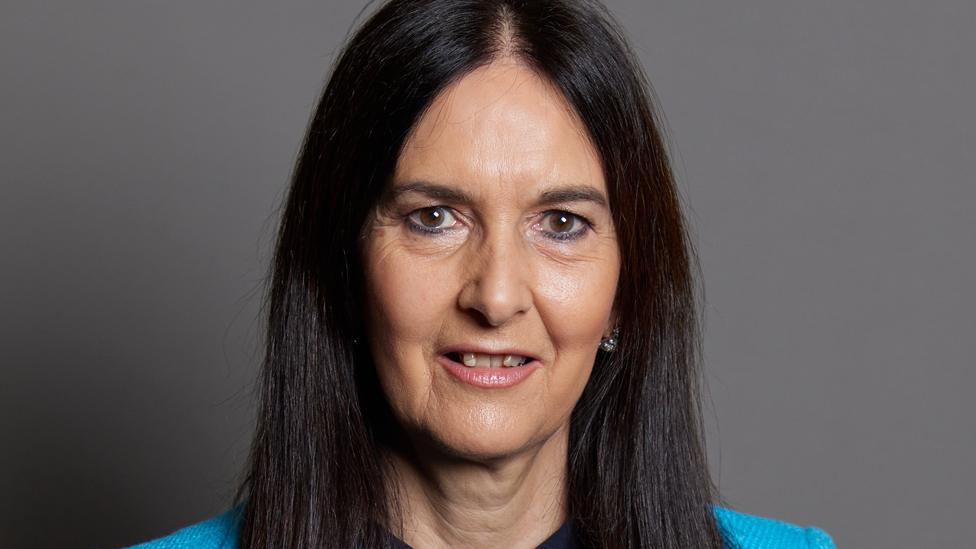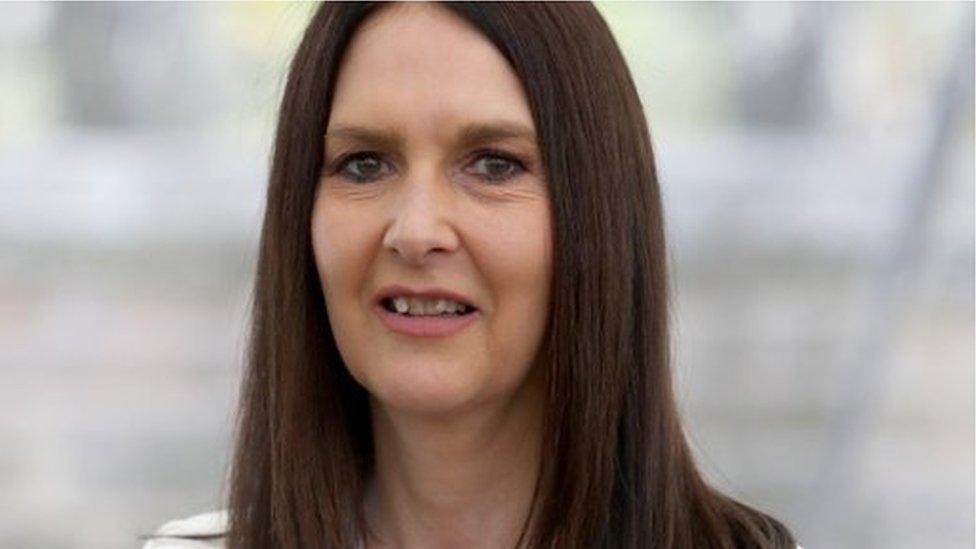Margaret Ferrier: Covid train trip MP to appeal Parliament ban
- Published

Margaret Ferrier will appeal against the proposed ban
MP Margaret Ferrier will appeal against a proposed 30-day ban from the House of Commons over breaching Covid rules.
It comes after she spoke in Parliament while awaiting the results of a Covid test in September 2020.
The Rutherglen and Hamilton West MP then took a train home to Glasgow after learning she had tested positive.
She was elected as an SNP MP but lost the whip following her actions and now sits as an independent. Her suspension would likely lead to a by-election.
The Commons' Standards Committee recommended last month that she should be suspended.
In August last year Ferrier was sentenced to 270 hours community service at Glasgow Sheriff Court after pleading guilty to a charge of culpable and reckless conduct.
It stated that she failed to self-isolate and had "exposed people to risk of infection, illness and death".
If an MP is suspended from the Commons for more than 10 days, then a recall petition can be launched seeking a by-election.
If this is supported by 10% of voters in the constituency, then a by-election would be triggered.
Ferrier won an SNP majority of 5,230 at the last general election, with Labour finishing second.

Ferrier appeared at Glasgow Sheriff Court in August last year
Parliamentary Commissioner for Standards, Daniel Greenberg, began the investigation into Ferrier's conduct last October.
The MP had taken a Covid test on Saturday 26 September 2020 because she had a "tickly throat".
While awaiting her results, she went to church on the Sunday and later spent more than two hours in a bar in Prestwick, Ayrshire.
She then travelled to London by train - which had 183 passengers on board - on the following Monday and spoke in the Commons later that day.
A short time later she found out that she had tested positive for the virus.
Ferrier took a train back to Glasgow the next day, fearing she would have to self-isolate in a London hotel for two weeks.
The commissioner concluded that she put her own personal interest ahead of the public interest by not immediately self-isolating in London, and had caused "possible risk of harm to health and life for people she came into contact with".
The commissioner also said her actions "caused significant damage" to the reputation of the House of Commons and noted that people in other roles would have been sacked for a similar breach of the lockdown rules.
Ferrier told the commissioner her self-referral was "an open acceptance" and an "indication of remorse" that she had brought Parliament into disrepute.
But she maintained that she did not put her personal interest above that of the public.
It is not known how long the appeal process will take.
- Published30 March 2023

- Published18 August 2022
